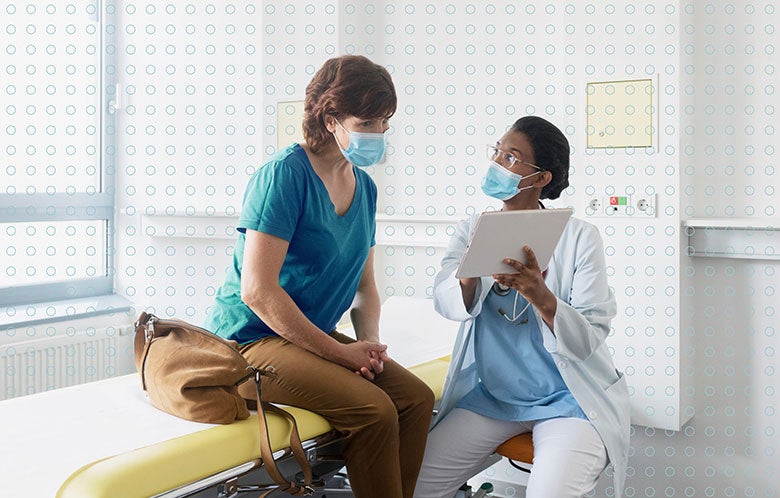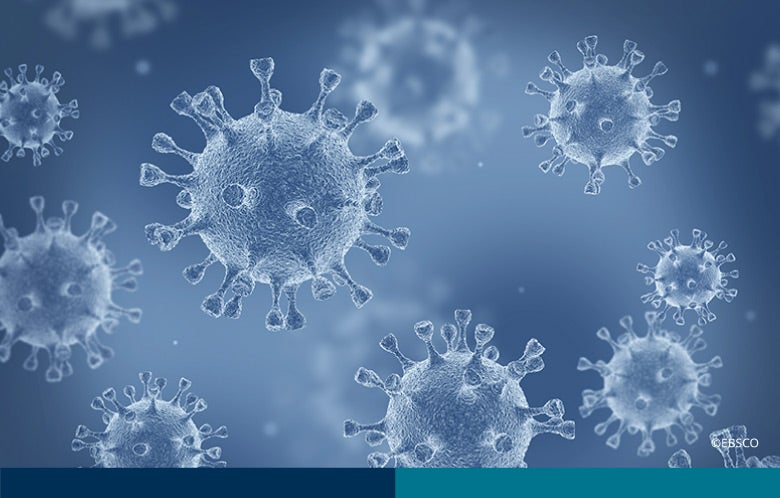1. Do the current vaccines work against the SARS CoV-2 variants?
There is limited epidemiologic data thus far on the protection afforded by the vaccines against variants of SARS-CoV-2. While it appears that all the vaccines elicit antibodies capable of neutralizing each of the variants of concern, how much is needed for protection and how long it lasts remains unclear.
A case-control study conducted in England reported 88 percent effectiveness of the Pfizer/BioNTech mRNA vaccine and 67 percent effectiveness of the AstraZeneca adenovirus vaccine against the Delta variant. A post-hoc analysis of a randomized trial found 70 percent effectiveness of the AstraZeneca vaccine against the Alpha variant. A preprint study (not yet peer reviewed and thus not yet appraised in DynaMed) reported 76 percent effectiveness for Moderna and 42 percent for Pfizer/BioNTech during a time in which the Delta variant has dominated in the United States.
As new studies are published, they will be evaluated and summarized in DynaMed.
2. What’s the latest on COVID-19 vaccination side effects?
Side effects from COVID-19 vaccines include both local and systemic symptoms. Local symptoms include pain, swelling, and erythema at the injection site. Localized axillary lymphadenopathy on the vaccinated side may occur in those receiving mRNA vaccines. Systemic symptoms are typically mild-to-moderate and include fever, fatigue, headache, chills, myalgia, and arthralgia. Anaphylactic reactions have been reported rarely.
Serious side effects have also been reported including myocarditis and pericarditis after mRNA vaccines and cerebral venous sinus thrombosis with adenovirus vectored vaccines. Both reactions are rare.
3. What’s the latest on drugs to treat COVID-19?
Recommendations for drugs to treat COVID-19 depend on the severity of illness.
For non-hospitalized patients with mild COVID-19, symptomatic care may be sufficient. For patients at high risk for disease progression, antiviral monoclonal antibody therapy may be considered (see question 4 for more information).
For hospitalized patients who do not require supplemental oxygen, no specific antiviral or immunomodulatory therapies are recommended. Some healthcare providers have used remdesivir in persons they felt were at high risk of clinical worsening.
For hospitalized patients on supplemental oxygen who do not require oxygen delivery through high-flow device, noninvasive ventilation, invasive mechanical ventilation, or extracorporeal membrane oxygenation (ECMO), remdesivir with or without dexamethasone or dexamethasone alone are generally recommend. Some healthcare providers have also added tocilizumab or bariticinib to dexamethasone if the patient has increasing oxygen needs or signs of systemic inflammation.
For hospitalized patients requiring oxygen delivery through high-flow device or noninvasive ventilation, but not invasive mechanical ventilation or ECMO, options include dexamethasone alone or dexamethasone plus remdesivir. If the patient has been recently admitted to the intensive care unit or has rapidly increasing oxygen needs and significantly increased markers of inflammation, then tocilizumab or baricitinib plus dexamethasone with or without remdesivir may be considered.
For hospitalized patients requiring invasive ventilation or ECMO, dexamethasone is the drug of choice, though some may consider dexamethasone plus tocilizumab in patients admitted to the ICU within 24 hours.
Drugs that remain experimental with insufficient data to recommend for or against include ivermectin, interleukin 1 inhibitors, fluvoxamine, and inhaled budesonide.
Treatment recommendations and clinical trials can be found in the Management of COVID-19 topic in DynaMed.
4. There have been a lot of changes in the recommendations concerning antiviral monoclonal antibodies. Where are we now?
Monoclonal antibodies are directed against the spike protein of SARS-CoV-2 and may be considered for patients with mild-moderate COVID-19 not requiring hospitalization. It may also be considered for patients hospitalized for another reason who also have mild-moderate COVID-19 with risk factors for progression to more severe disease, or patients who have not made an antibody response or who are not expected to mount an effective immune response.
Combination therapy with casirivimab plus imdevimab or monotherapy with sotrovimab may be considered. Treatment should begin as soon as possible after diagnosis and within 10 days of symptom onset for maximal benefit.
5. Does convalescent plasma have a role in COVID-19 management?
There are two formulations referred to as low-titer and high-titer convalescent plasma. At this time, neither formulation is recommended for patients with COVID-19. The FDA has revoked emergency use authorization of low-titer convalescent plasma, though high-titer plasma is still being tested in clinical trials.



